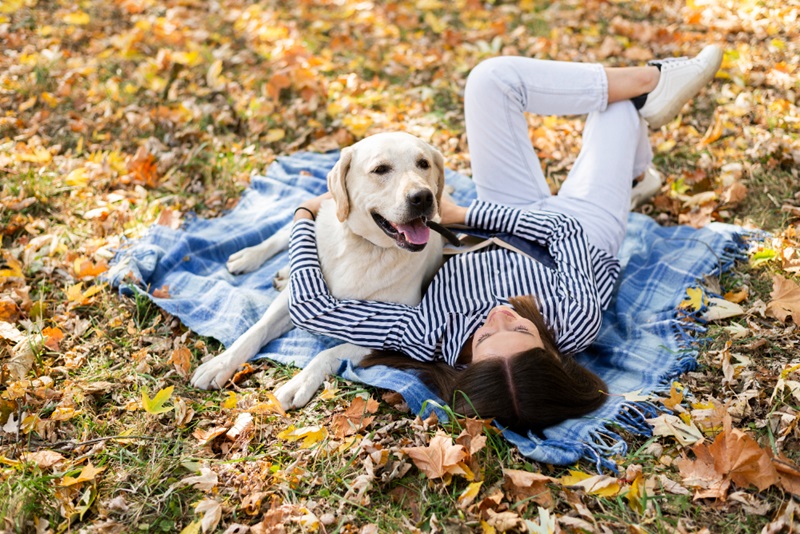Seasonal changes bring excitement for many of us, but they can also mean new challenges for your furry friends. From extreme heat to icy cold, pets face risks during weather transitions. Pet owners must be vigilant to keep their animals comfortable, safe, and healthy no matter the season.
Here are practical tips to keep your pets safe through seasonal changes.

Fall: The Start of Chilly Nights
- Warm Beds and Shelter: Outdoor pets like dogs and cats need insulated, elevated shelters to stay dry and warm. Add blankets for extra comfort.
- Watch for Toxic Plants: Fall often brings mushrooms, acorns, and certain seasonal flowers that can be toxic to pets. Supervise outdoor activities closely.
- Avoid Overfeeding: While pets might need slightly more calories for warmth, overfeeding can cause obesity. Focus on nutrient-dense foods in moderate portions.
- Stay Visible During Walks: Diminishing daylight in fall makes reflective collars or LED lights essential for pet safety during evening walks.

Winter: Frost and Freezing Risks
- Providing Protective Gear: Small dogs, puppies, or older pets with arthritis benefit from sweaters, jackets, and boots to retain warmth.
- Keeping Them Indoors: Avoid prolonged exposure to freezing temperatures. Pets should stay indoors most of the time, especially at night.
- Avoiding Toxic Antifreeze: Antifreeze spills are common in winter, and even a small amount can poison pets. Keep bottles tightly sealed and spills cleaned promptly.
- Inspecting Paws After Walks: Salt, ice, and de-icing chemicals can damage paw pads. Wash paws immediately after walks and use paw balm for added protection.
- Ensure Hydration: Pets may drink less water in winter but still need proper hydration. Check water bowls for freezing and provide warm water.

Spring: New Beginnings and Allergens
- Prevent Allergic Reactions: Pollen, grass, and even insect bites can cause reactions in pets. If you notice symptoms like excessive scratching or watery eyes, consult a vet.
- Check for Parasites: Spring marks the return of fleas, ticks, and mosquitoes. Use vet-approved preventatives and perform regular checks after outdoor activities.
- Secure Yard Fencing: Pets often get more adventurous in spring. Repair any fence gaps or loose panels to prevent escapes.
- Avoid Fertilizers and Pesticides: Chemicals in lawn care products can be harmful if ingested. Keep pets off treated areas until it’s safe.
- Watch Out for Bee Stings: Curious pets may get stung while playing. Keep an eye out for swelling or allergic reactions and have a first-aid kit ready.

Summer: Heat and Hydration
- Never Leave Pets in Cars: Even with windows cracked, temperatures inside cars can rise rapidly and become fatal within minutes.
- Provide Fresh Water: Pets dehydrate faster in summer. Place multiple water bowls in shaded areas and consider ice cubes to keep the water cool.
- Limit Walks During Peak Heat: Pavement can become too hot for paws. Test the surface with your hand or opt for grassy paths early in the morning or late evening.
- Use Pet-Friendly Sunscreen: Apply sunscreen to areas like the nose, ears, and belly for pets with light fur. Avoid human products as they may contain harmful chemicals.
- Create Shaded Outdoor Spaces: If your pet spends time outdoors, ensure there’s ample shade, and consider cooling mats for extra comfort.
- Monitor for Heatstroke Signs: Watch for excessive panting, drooling, or lethargy. Move your pet to a cool place and offer water immediately if you suspect heatstroke.
General Tips for All Seasons
- Stay Updated on Vet Visits: Schedule regular check-ups to monitor your pet’s overall health. Vaccines, dental care, and parasite prevention should be addressed during these visits. Early detection of seasonal allergies or illnesses can prevent serious issues.
- Watch for Behavioral Changes: Pets may become anxious, lethargic, or irritable due to weather changes. Monitor their eating, sleeping, and activity levels for signs of stress or illness. Consult your vet if changes persist.
- Microchip Your Pets: A microchip greatly increases the chances of reuniting with your pet if they get lost. Keep the microchip details up-to-date with your current contact information.
- Maintain a Healthy Diet: Adjust feeding portions according to activity levels and seasonal needs. Overfeeding in winter or underfeeding in summer can impact their health.
- Provide Clean and Fresh Water: Ensure water bowls are always clean and accessible. In winter, check for freezing, and in summer, keep the water cool and refreshed.
- Keep Emergency Supplies Ready: Have a pet emergency kit with essentials like a leash, food, medications, and first-aid items for unexpected situations.
- Groom Regularly: Grooming helps manage seasonal shedding and ensures their coat is free of debris, pests, or matting, which can cause discomfort.

Seasonal Pet Safety FAQs
- Q: How can I tell if my pet is too cold in winter?
- A: If your pet is shivering, curling up tightly, or seems reluctant to move, they may be too cold. Bring them indoors and offer warmth immediately.
- Q: Can pets have allergies like humans?
- A: Yes, pets can have seasonal allergies. Symptoms include itching, watery eyes, and sneezing. Speak with a veterinarian for solutions.
- Q: Is sunscreen necessary for pets in summer?
- A: Pets with thin fur or light-colored noses can benefit from pet-friendly sunscreen. Avoid human sunscreen as it may contain harmful ingredients.
- Q: What are common plants to avoid during seasonal changes?
- A: In fall, watch for mushrooms. During spring, lilies can be fatal to cats, and azaleas are harmful to both cats and dogs.
- Q: How do I protect my pet’s paws in extreme weather?
- A: Use booties or paw wax for protection. Wash and inspect their paws after walks for any cuts or irritation.
Keep Your Pets Happy and Healthy
Pets rely on us to guide them through seasonal changes safely. By staying informed and prepared, you can make every season enjoyable for your furry companion. With a little extra care, your pets can thrive year-round.

